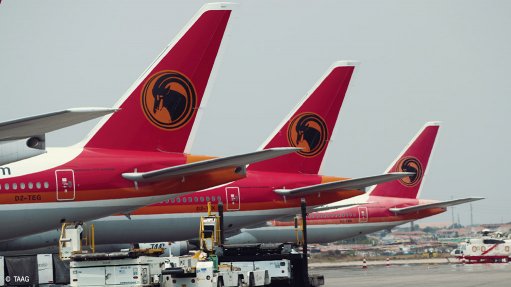
Photo by: TAAG
The global representative body for the airline industry, the International Air Transport Association (IATA), has launched its Focus Africa initiative, to help the continent’s commercial aviation industry achieve its potential.
Currently, Africa is home to 18% of the world’s population, but African airlines account for only 2.1% of global air passengers.
Further, during this century, Africa will lead the world in terms of growth in working-age populations. By 2100, Africa’s working-age population is projected (by the United Nations) to reach just over 2.5-billion, which will not be far behind that of Asia.
“Africa stands out as the region with the greatest potential and opportunity for aviation,” highlighted RwandAir CEO and incoming IATA board of governors chairperson Yvonne Makolo. “The Focus Africa initiative renews IATA’s commitment to supporting aviation on the continent.”
Makolo will be the first woman to become chairperson of IATA.
“When I look at Africa, I just see opportunity,” said IATA director-general Willie Walsh. “There is a direct correlation between aviation and [gross domestic product].”
Makolo, the first African to be elected to the post of IATA chairperson since 1993, stressed that Focus Africa was developed in cooperation with African authorities, organisations and airlines.
“A strong air transport sector will help [Africa] deal with fundamental challenges,” she affirmed. “If aviation is given the opportunity to thrive, the entire economy will grow.”
Currently, the African airline industry faces a number of significant challenges. These are inadequate infrastructure, high costs, lack of intracontinental air connectivity, safety, access to cost-efficient and secure financial services, and currency repatriation (blocked funds) issues.
Regarding air transport infrastructure, in 2021 (the most recent available statistics), the highest ranked African countries were Egypt and Algeria, both at 32. Next came South Africa at 43, then Morocco at 50, Kenya at 57, and Mauritius at 61.
African airlines also face higher costs than their peers on the other continents. User charges in Africa are on average 8% higher than the global average, for example. And jet fuel is more expensive in Africa than elsewhere. In 2021, this averaged about 12% higher than the global norm (and the global jet fuel price spiked last year). This was for a variety of reasons, including the relatively small size of the jet fuel market in Africa, and the lack of jet fuel refining capacity across the continent, meaning it almost always had to be imported (imposing transport costs, not to mention the consequences of local currency depreciation). A competitive fuel market is needed in Africa.
Intracontinental air connectivity in Africa is limited and is the worst in the world. And intra-African air travel is some 45% more expensive than intra-European air travel, for example.
Safety has improved significantly across the continent. But 21 African States have not yet achieved the Effective Implementation level for International Civil Aviation Organisation State Safety Programmes.
Another challenge is that just five African countries have adopted Advance Passenger Information (API) or the upgraded interactive API (iAPI) systems, which helps speed travellers through customs and immigration procedures when they arrive at their destinations. They also reduce the burdens on customs and immigration officials. Worldwide, 84 countries have implemented API, while another 22 have now implemented iAPI. South Africa is so far the only African country to implement iAPI.
Countries blocking the repatriation of airline funds is a huge issue. Currently, $1.6-billion in airline funds are blocked by four African countries. This represents 66% of airline funds blocked globally. Half the African amount is blocked by just one country, Nigeria. But that country now has a new government and IATA is negotiating with it. Blocking airline funds damages a country’s air connectivity, as airlines will cease flying to it.